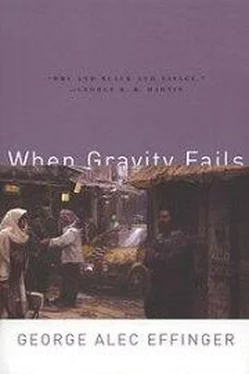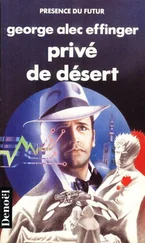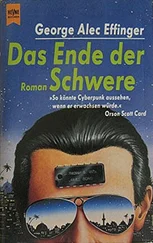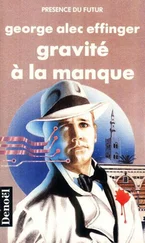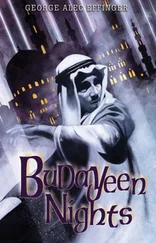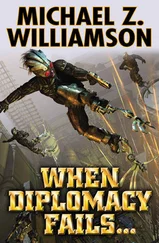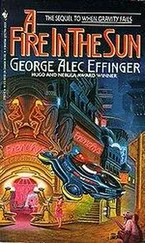“Not necessarily,” said the lieutenant. “The Russian wasn’t part of the Budayeen. He was a political nobody who set foot in your quarter only because you asked him to meet you there.”
“You’re doing a good job of changing the subject, Okking. Answer the question: Where is Seipolt from and what does he do?”
“He came to the city three or four years ago, from someplace in the Fourth Reich, Frankfurt, I think. He set himself up as an import-export agent — you know how vague a description that is. His main business is food and spices, coffee, some cotton and fabrics, Oriental rugs, junk copper and brass pieces, cheap jewelry, Muski glass from Cairo, and other minor things. He’s big in the European community, he seems to turn a nice profit, and he has never shown any signs of being involved in any high-level illicit international trade. That’s about all I know.”
“Can you imagine why he pulled a gun on me when I asked him a few questions about Nikki?”
Okking shrugged. “Maybe he just likes his privacy. Look, you aren’t the most innocent-looking guy in the world, Audran. Maybe he thought you were there to put the arm on him and run off with his collection of ancient statuary and scarabs and mummified mice.”
“Then you’ve been to his place?”
Okking shook his head. “I get reports,” he said. “I’m an influential police administrator, remember?”
“That’s right, I keep forgetting. So the Nikki-Seipolt angle is a dead end. What about the Russian, Bogatyrev?”
“He was a mouse working for the Byelorussians. First his kid went missing, and then he had the bad luck to stop this James Bond’s slug. He has even less of a connection to the other murders than Seipolt does.”
I smiled. “Thanks, Lieutenant. Friedlander Bey wanted me to make sure you hadn’t turned up any new evidence lately. I really don’t want to disrupt your investigation. Just tell me what I should do next.”
He made a face. “I’d suggest that you go on a fact-finding mission to Tierra del Fuego or New Zealand or somewhere out of my hair, but you’d only laugh and not take me seriously. So check on anyone who had a grudge against Abdoulaye, or if anyone particularly wanted to kill the Black Widow Sisters. Find out if any of the Sisters had been seen with an unknown or suspicious person just before she was killed.”
“All right,” I said, standing up. I’d just been given a first-class runaround, but I wanted Okking to think he had me snowed. Maybe he had some definite leads that he didn’t want to share with me, despite what Papa had said. That might explain his offhand lying. Whatever the reason, I planned to come back soon — when Okking wasn’t around — and use the computer records to dig a little deeper into the backgrounds of Seipolt and Bogatyrev.
When I got home, Yasmin pointed to the table. “Somebody left a note for you.”
“Oh yeah?”
“Just slipped it under the door and knocked. I went to the door, but there wasn’t anybody there. I went downstairs, but there was nobody on the sidewalk, either.”
I felt a chill. I tore open the envelope. There was a short message printed out on computer paper. It said:
AUDRAN:
YOU’RE NEXT!
JAMES BOND IS GONE.
I’M SOMEONE ELSE NOW. CAN YOU GUESS WHO?
THINK ABOUT SELIMA AND YOU’LL KNOW.
IT WONT DO YOU ANY GOOD, BECAUSE YOU’LL BE DEAD SOON!
“What does it say?” asked Yasmin.
“Oh, nothing,” I said. I felt a little tremor in my hand. I turned away from Yasmin, crumpled the paper, and stuffed it in my pocket.
Since the night Bogatyrev had been killed in Chiriga’s place, I had felt almost every strong emotion a person can. There had been disgust and terror and elation. I had known hate and love, hope and despair. I had been by turns timid and bold. Yet nothing had filled me so completely as the fury that surged in me now. The preliminary jostling was over, and ideas like honor, justice, and duty were submerged beneath the overpowering need to stay alive, to keep from being killed. The time for doubt had passed. I had been threatened — me , personally. That anonymous message had gotten my attention.
My rage was directed immediately at Okking. He was hiding information from me, maybe covering up something, and he was endangering my life. If he wanted to endanger Abdoulaye or Tami, well, I guess that’s police business. But endangering me — that’s my business. When I got to his office, Okking was going to learn that. I was going to teach it to him the hard way.
I was striding fiercely up the Street, seething and rehearsing what I was going to say to the lieutenant. It didn’t take me long to get it all worked out. Okking would be surprised to see me again, only an hour after I’d left his office. I planned to storm in, slam his door so hard the glass would rattle, shove the death threat into his face, and demand a complete recitation of facts. Otherwise I would haul him down to one of the interrogation rooms and bounce him off his own walls for a while. I bet Sergeant Hajjar would give me all the help I wanted, too.
As I got to the gate at the eastern end of the Budayeen, I faltered a bit between steps. A new thought had rammed its way into my mind. I had felt that little tickle of unfinished business this morning when I’d talked to Okking; I’d felt it after seeing Selima’s corpse, too. I always let my unconscious mind work on those tickles, and sooner or later it puzzled them out. Now I had my answer, like an electric buzzer going off in my head.
Question : What is missing from this picture?
Answer : Let’s take a close look. First, we’ve had several unsolved murders in the neighborhood in the last several weeks. How many? Bogatyrev, Tami, Devi, Abdoulaye, Nikki, Selima. Now, what do the police do when they hit a brick wall in a homicide investigation? Police work is repetitive, tedious, and methodical; they bring in all the witnesses again and make them go over their statements in case some vital clue has been neglected. The cops ask the same questions five, ten, twenty, a hundred times. You get dragged down to the station, or they wake you up in the middle of the night. More questions, more of the same dull answers.
With a scoreboard showing six unsolved, apparently related killings, why hadn’t the police been doing more plodding and inspecting and badgering? I hadn’t had to go through my stories a second time, and I doubt that Yasmin or anyone else had to, either.
Okking and the rest of the department had to be laying off. By the life of my honor and my eyes, why weren’t they pursuing this thing? Six dead already, and I was sure that the count would go higher. I had been personally promised at least one more corpse — my own.
When I got to the copshop I went by the desk sergeant without a word. I wasn’t thinking about procedures and protocol, I was thinking about blood. Maybe it was the took on my face or a midnight-black aura I was carrying with me, but no one stopped me. I went upstairs and cut through the maze of corridors until I came to Hajjar, sitting outside Okking’s meager headquarters. Hajjar must have noticed my expression, too, because he just jerked a thumb over his shoulder. He wasn’t going to stand in my way, and he wasn’t going to take his chances with the boss, either. Hajjar wasn’t smart, but he was tricky. He was going to let Okking and me beat on each other, but he wasn’t going to be nearby himself. I don’t remember if I said anything to Hajjar or not. The next thing I recall, I was leaning over Okking’s desk with my right fist wrapped tightly in the bunched cotton cloth of his shirt. We were both screaming.
“What the hell does this mean?” I shouted, waving the computer paper in front of his eyes. That’s all I could get out before I was spun around, dropped, and pinned to the floor by two policemen, while three more covered me with their needle guns. My heart was already racing, it couldn’t beat any faster without exploding. I stared at one of the cops, looking into the tiny black mouth of his pistol. I wanted to kick his face in, but my mobility was restricted.
Читать дальше
